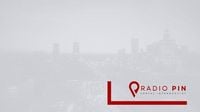Barbara Nowacka, a prominent Polish politician and leader of the Inicjatywa Polska, has been serving as the Minister of National Education since December 2023. Her tenure has sparked significant controversy, particularly concerning her policies on education and her advocacy for women's and minority rights. This article delves into her background, political views, and the controversies that have accompanied her rise in Polish politics.
Born on May 10, 1975, in Warsaw, Nowacka is the daughter of Izabela Jaruga-Nowacka, a former deputy prime minister, and Jerzy Nowacki, the rector of the Polish-Japanese Academy of Information Technology. She graduated from the University of Warsaw, where she became involved in feminist movements, including the Federation for Women and Family Planning.
Nowacka began her political career in 2001 by joining the United Left. Her journey through politics has been marked by various roles and challenges. In 2014, she unsuccessfully ran for the European Parliament under the Europa Plus banner. Following that setback, she joined the Palikot Movement and, in 2015, became the leader of the United Left. Despite her ambitious plans, her coalition failed to gain sufficient support in the 2015 parliamentary elections.
On December 13, 2023, Nowacka was appointed Minister of National Education in Donald Tusk's government, a role that has been fraught with emotional responses and controversies. Her introduction of changes to the national curriculum has drawn criticism from historians and conservatives, particularly for omitting key figures and events from Polish history.
Nowacka is an outspoken advocate for women's rights, including access to abortion and in vitro fertilization for single women. She also supports LGBT rights, advocating for same-sex couples to have the right to adopt children. Her criticisms of the influence of the Catholic Church on Polish politics have triggered a fierce backlash from her opponents.
In 2020, Nowacka participated in protests against new restrictions on abortion laws, where she faced police violence. Her controversial remarks, including a regrettable statement about "Polish Nazis" building concentration camps, led to calls for her resignation. Both Nowacka and Prime Minister Tusk described this as a "slip of the tongue," although recordings of the incident undermined that explanation.
As a key opposition figure, Nowacka faces challenges in consolidating political forces in Poland. In public discussions, she emphasizes the need for unity in the face of opposition crises and the importance of fighting for women's and minority rights in the country.
However, her tenure has not been without significant resistance. Since the spring of 2024, there has been an open conflict between aware parents and Nowacka's ministry, particularly regarding the removal of the term "national" from the ministerial title and related documents. Critics argue that her reforms threaten the educational process and the integrity of the Polish education system.
Among the most contentious changes has been the removal of 20% of the core curriculum across 18 subjects. This decision has raised alarms about the quality of education and the potential chaos it may create in schools. Furthermore, in the upcoming school year 2025/6, students enrolled in religion classes will see 50% of their lessons cut, a move that has drawn ire from many within the educational community.
On April 30, 2025, the National Section of Education and Upbringing NSZZ "Solidarity" issued a statement condemning the introduction of the subject "health education," labeling it unnecessary and harmful. They asserted that approximately 2 million Poles have rallied together against this initiative, calling for parents to withdraw their children from these classes.
The project aimed at spreading inclusive education has been allocated a budget of 221,970,514.46 PLN, raising concerns about its implementation and the underlying motives. Critics argue that it represents a shift towards a more ideologically driven education system, prioritizing inclusivity over factual knowledge and traditional values.
Nowacka's policies have led to a significant rise in the number of students opting for private education, with reports indicating an increase of 8,000 students in Warsaw alone over the past year. This trend suggests a growing dissatisfaction with the public education system and a flight towards alternatives that align more closely with parental values.
Moreover, the ongoing push for inclusive education has been criticized as disproportionately favoring immigrant students over Polish children with special educational needs. Critics argue that this approach undermines the quality of education for all students, as resources are diverted to accommodate a broader range of needs without adequate planning or support.
The opinion of the National Section of Education and Upbringing NSZZ "Solidarity" highlights significant threats to the quality of education and the overall situation of teachers within the Polish education system. They warn that the proposed changes, while containing some positive elements, largely disregard the rights of teachers and may lead to a chaotic educational environment.
In summary, Barbara Nowacka's tenure as Minister of National Education has been marked by significant changes and controversies that have polarized public opinion. As she continues to navigate the complexities of Polish politics and education reform, the stakes remain high for students, parents, and educators alike. The future of Poland's educational landscape hangs in the balance as various factions clash over the direction of reform and the values that will shape the next generation.





